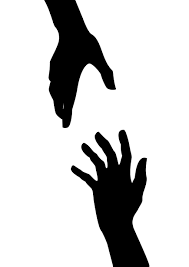Help from a social worker
One of the supports Family & Youth Initiative offers volunteers is the opportunity to consult with a supportive and knowledgeable clinical social worker when they run into challenges. In this post a DCFYI mentor reflects on how beneficial that support has been:
A social worker with an understanding of the foster system – what a wonderful resource for mentors! I recently had the opportunity to talk with the DCFYI social worker. In two short sessions – plus my homework in between – I gained new strategies for connecting effectively with and supporting my mentee. I have new behaviors to practice. I also have a new resource who is up to speed on the context and the relationship when I hit a bump and need help.
I have been connected with a DCFYI foster teen alumnus for eight years. We met shortly before he aged out of the foster system at age 21. He’s 28. We are key people in each other’s lives. We text regularly and talk sometimes. In the “before times” – before COVID - we saw each other most weeks for a walk or a meal. Sunday dinner was our regular until mid-March.
I know that I sometimes enable rather than empower my mentee but didn’t know how to shift my behavior. The social worker’s insight was fast, deep, and accurate without being harsh. I mentioned that my mentee has lied to me about small things, and also in big ways that challenge our relationship. She cut to the chase. In the foster care system we learn, “I am the only one who will be there for me. I will do what it takes to get what I need or want.” Therefore, if I as a support show that a “No” will become a “Yes” if he persists, then he will persist until I relent. This usually involves financial support, but lately involves his wish to see me and my understanding that we all need to limit unnecessary exposure to others at this time. I need to stick to my “No” if it is to remain a “No.” I need to come up with alternatives that allow me to say “No” and also support him.
My homework was to identify boundaries that I would like to establish. How can I support my mentee in a new way, empowering rather than enabling him? What would it take for me to be consistent with boundaries? I reflected. I talked through the questions and possible changes in my behavior with my father while we walked. I made a few notes and wrote questions for the social worker, which we later discussed.
The social worker asked if I feel guilty. Do I feel guilty for the negative experiences my mentee had and his difficulty negotiating adult life? I do. I experience a level of guilt for the traumas my mentee experienced in his many years in the foster care system. He is one of many. I feel guilty for the resources I have that others do not, particularly in this time in which “Black Lives Matter” is a politicized issue. As a young Black male, my mentee has faced and continues to face challenges that I can only imagine. I can’t solve the big social problems of racism and inequality. The best I can do is change my behavior.


